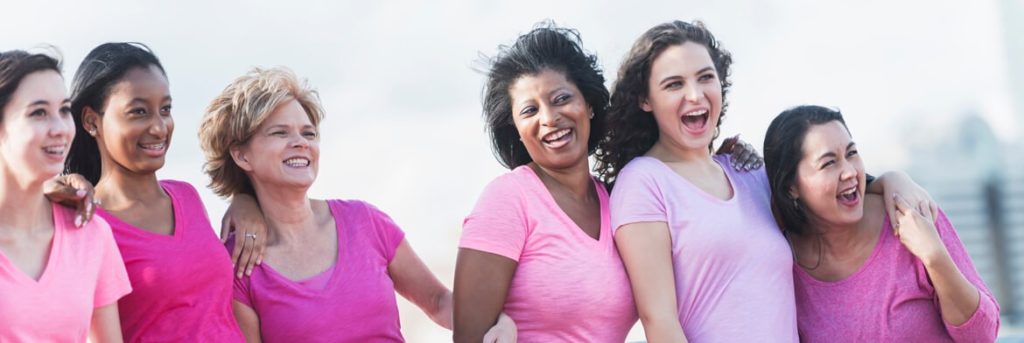Wrap Your Head Around This: Take Charge of Your Health During Breast Cancer Awareness Month

October is Breast Cancer Awareness month and with it come discussions around what is quickly becoming the biggest killer of women in the world. Every time I hear the ‘C’ word, I shudder in fear. I have lost family members and friends and hearing the word cancer makes me feel a sadness I cannot describe. What makes it even scarier is the jargon around it and the contradictory messages on how to reduce your chances of getting it. It also doesn’t help that the healthcare system lets down cancer patients as we hear harrowing stories of patients waiting for months to receive lifesaving treatment only for it to be too late. Even with all the fear and misunderstanding around cancer, it is something we must talk about especially as more of us are diagnosed with it.
The statistics from WHO are that there will be 20 million new cancer cases by 2020 with majority of those coming from the developing world. Already, one of the biggest killers of women in Kenya is breast cancer, with 27,000 women dying every year. How do we as a society not only come to terms with this but better equip ourselves to offer the support necessary for patients and survivors? I had the wonderful opportunity to learn more about cancer from a panel of experts thanks to a partnership between Barclays Bank Kenya and Twakutukuza Trust. There was a lot to take away from the session with great advice from doctors, survivors and caregivers.
Caroline Ndung’u (Director of Marketing and Corporate Relations at Barclays Bank), gave the opening remarks and spoke on the inspiration behind the ”Wrap Your Head Around This’ initiative which was solidarity with cancer patients who usually lose their hair as they go through treatment. All the guests at the event, including the gentlemen, rocked pink headewraps.
Here are some of the things that stood out from the panel discussion.
1. What check-ups should I do with regards to cancer?
It is advisable to get an annual pap smear and a breast exam if you are a woman above 25. If you are above 40, it is advisable to get a mammogram. The best thing though is to be aware of your body and be quick to notice any changes. The average age for breast cancer is dropping with it being around 35 so even younger women who may not have been as keen must be serious about their health from an early age. Women tend to not to go to the hospital until they are very sick which unfortunately, means that the chances of death are higher as both breast cancer and cervical cancer do not have symptoms until the advanced stages.
2. What are the risk factors for cancer?
There is a lot of contradictory research out there and it can be confusing to know what to avoid. What everyone agrees on though is that tobacco is an absolute no and that a healthy diet is important. Other risk factors include alcohol and processed food especially anything with preservatives. Genes also play a part but not as much as we think as those with breast cancer due to a genetic disposition amount for only 10%, with the other 90% being spontaneous.
3. Why are there different stages of cancer and what do they mean?
The stages for cancer begin at 1 through to 4 and are based on how far the cancer has spread. Too many patients unfortunately, end up in the hospital when they are already at stage 4 which leaves them with only palliative care as an option.
4. How long does it take for cancer to spread?
Anywhere from 9 months to 1 year. I was a little surprised by this as I thought it would take a little longer to move from stage 1 to 4. So, this makes that annual check-up and being aware of your body and taking any symptoms seriously even more important.
5. How is cancer treated?
There are three options which can all be used: chemotherapy, radiotherapy and surgery. Chemotherapy is treatment that uses drugs most commonly through a tube with a needle into a vein (intravenously) or in pill/capsule form. Radiotherapy is treatment that involves the use of high energy rays to destroy cancer cells. The surgery option is usually to remove tumours and surrounding tissue.
6. Can you survive cancer?
Absolutely. It is important for it to be caught early as early diagnosis means more effective and less costly treatment. The founder of Twakutukuza Trust, Doris Mayoli survived stage 3 breast cancer and decided to start a trust to support other patients.
7. Where can someone with cancer find support?
There are many organizations offering support which is great as it is affecting thousands of Kenyans and treatment is terribly expensive even for the well-off. Twakutukuza Trust is one organization that has been able to support over 700 patients with both treatment as well as psychosocial support as cancer takes a toll on both the body and mind.
8. How can I support cancer patients?
Become a supporter of organizations like Twakutukuza by giving through their paybill number 56213. They also have an annual concert in October that is part of their crowdfunding towards providing support to cancer patients. This year’s concert takes place this weekend Friday 4pm, Saturday 5pm and Sunday 3pm at Nairobi Baptist Church with tickets at Ksh. 1,000 for adults, Ksh. 500 for children and Ksh. 1,500 for VIP.
http://www.mwendengao.com/2017/10/19/wrap-head-around-take-charge-health-breast-cancer-awareness-month/LifestyleBarclays Bank Kenya,Breast Cancer,Doris Mayoli,Twakutukuza Trust

Leave a Reply